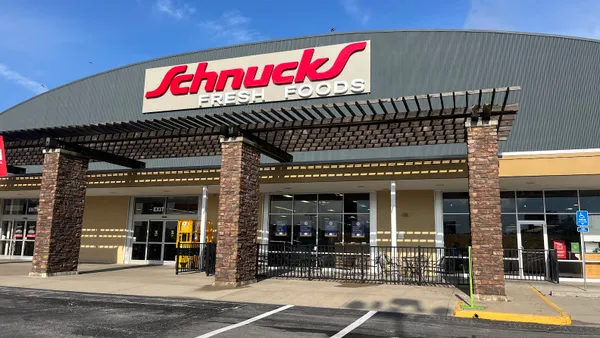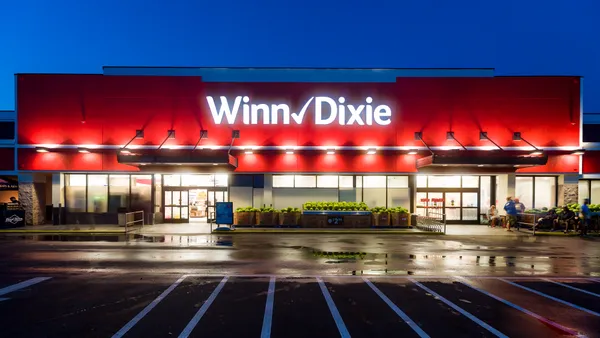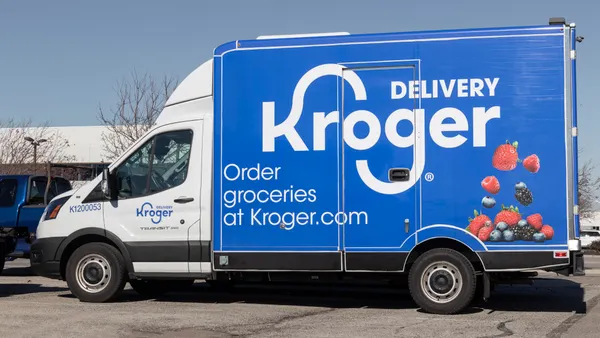Dive Brief:
- The U.S. restaurant industry saw its fourth straight month of sales acceleration in August, with sales up 3.7%, as major grocery chains saw their sales drop 7% from July, according to new data from M Science, a data analytics firm.
- The grocery brands that saw the greatest sales deceleration in August relative to the industry average were Smart & Final, Stop & Shop and Food Lion. Also witnessing decelerating sales were Fairway Market, ACME, Randalls, Food 4 Less, Fry’s, Ralphs, Roundy’s and online delivery service Instacart. Lidl and Wegmans both saw sales growth accelerate in August.
- The online segment of the grocery industry saw a particular month-on-month deceleration in its August sales, while the natural and organic subsector saw relative sales growth, according to M Science.
Dive Insight:
While year-over-year dollar growth in the grocery industry continues to trend above historical growth rates, last month witnessed a decline in basket growth for groceries, while the restaurant industry saw a sales acceleration from July. These trends, though only a small snapshot on a longer trajectory of largely positive performance for the grocery industry, indicate that Americans are starting to spend more of their income allocated for meals in restaurants rather than at grocery stores, at least in comparison to earlier in the summer.
More densely populated areas, which have kept more stringent restrictions on dining during the coronavirus pandemic, saw depressed restaurant sales compared to less densely populated areas, according to M Science. Online grocery delivery had a flatter deceleration in sales in regions with tighter in-person dining restrictions, such as in New York, New Jersey, and Connecticut. In New York City, which had the highest number of restaurants and cafes per capita of any city in the country before the coronavirus pandemic, Governor Andrew Cuomo has said restaurants can resume indoor dining at 25% capacity on Sept. 30.
FreshDirect, which provides same-day service in New York City and is competitive throughout the Mid-Atlantic and the Northeast, was the only online delivery service noted to have seen positive month-on-month sales growth. Just last month, the grocery delivery company expanded its capacity in New Jersey, Connecticut, Long Island, the Hamptons, and Westchester, and in June, it added a two-hour, on-demand delivery service to residents in parts of New York City.
M Science’s data indicates a particularly severe drop-off in sales for online grocery delivery service Instacart, which had a month-on-month dollar growth deceleration of nearly 60 percentage points. It attributed the company’s faltering to consumers’ weariness with high costs of delivery and a greater sense of safety with in-person shopping.
Whether consumers’ lessened anxiety extends to in-person dining at restaurants is unclear, even as states including Texas, Mississippi and Pennsylvania loosen provisions on indoor dining bans this month, especially if infection rates do not fall significantly.
The pandemic has forced restaurant chains to innovate, with many offering special meal deals, delivery promotions and even groceries. According to M Science, all subsectors across the restaurant industry, including QSRs, casual and fast casual restaurants, saw monthly sales accelerate in August.








